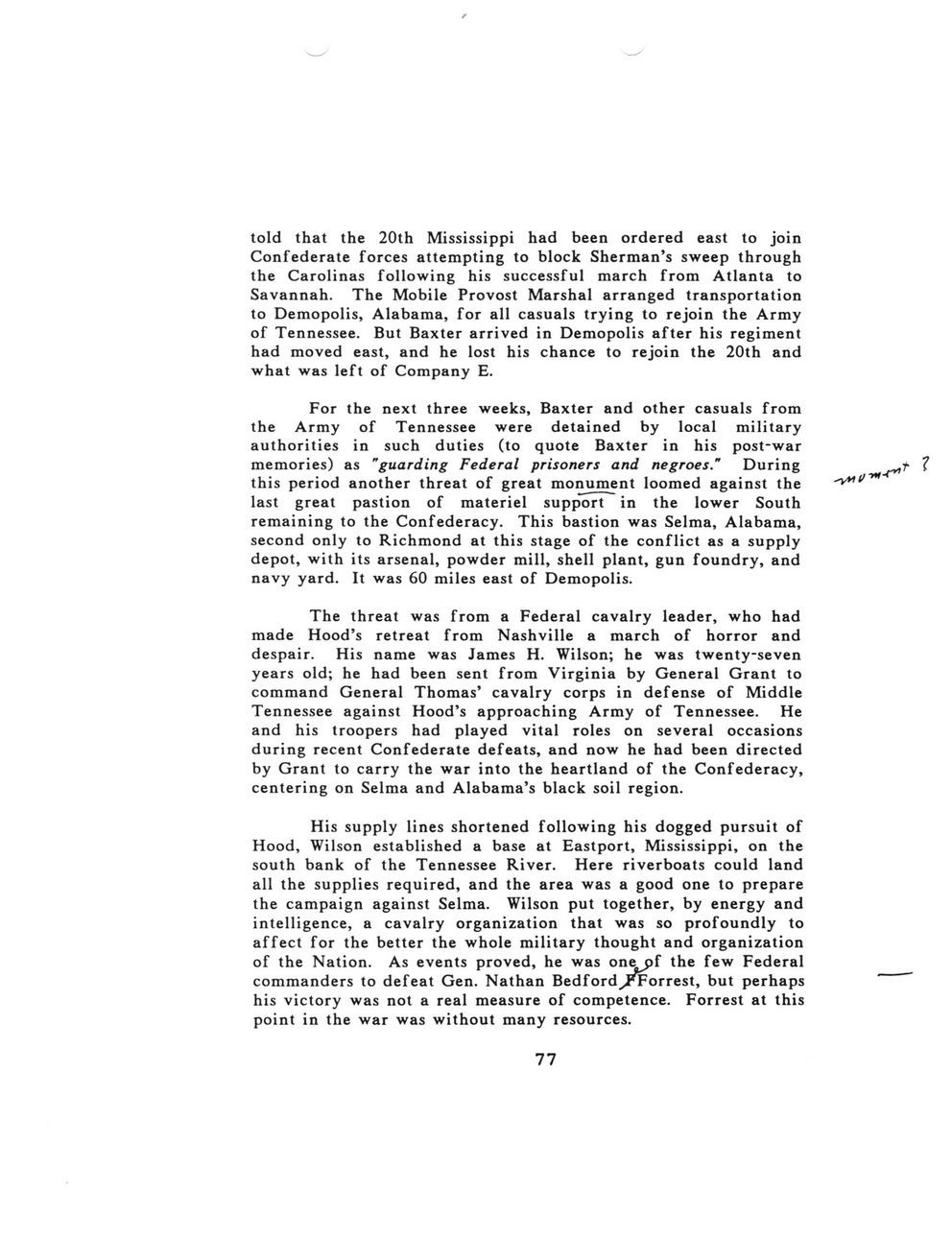This text was obtained via automated optical character recognition.
It has not been edited and may therefore contain several errors.
told that the 20th Mississippi had been ordered east to join Confederate forces attempting to block Sherman?s sweep through the Carolinas following his successful march from Atlanta to Savannah. The Mobile Provost Marshal arranged transportation to Demopolis, Alabama, for all casuals trying to rejoin the Army of Tennessee. But Baxter arrived in Demopolis after his regiment had moved east, and he lost his chance to rejoin the 20th and what was left of Company E. For the next three weeks, Baxter and other casuals from the Army of Tennessee were detained by local military authorities in such duties (to quote Baxter in his post-war memories) as "guarding Federal prisoners and negroesDuring 1 this period another threat of great monument loomed against the 'v*"* last great pastion of materiel support in the lower South remaining to the Confederacy. This bastion was Selma, Alabama, second only to Richmond at this stage of the conflict as a supply depot, with its arsenal, powder mill, shell plant, gun foundry, and navy yard. It was 60 miles east of Demopolis. The threat was from a Federal cavalry leader, who had made Hood?s retreat from Nashville a march of horror and despair. His name was James H. Wilson; he was twenty-seven years old; he had been sent from Virginia by General Grant to command General Thomas? cavalry corps in defense of Middle Tennessee against Hood?s approaching Army of Tennessee. He and his troopers had played vital roles on several occasions during recent Confederate defeats, and now he had been directed by Grant to carry the war into the heartland of the Confederacy, centering on Selma and Alabama?s black soil region. His supply lines shortened following his dogged pursuit of Hood, Wilson established a base at Eastport, Mississippi, on the south bank of the Tennessee River. Here riverboats could land all the supplies required, and the area was a good one to prepare the campaign against Selma. Wilson put together, by energy and intelligence, a cavalry organization that was so profoundly to affect for the better the whole military thought and organization of the Nation. As events proved, he was one of the few Federal commanders to defeat Gen. Nathan Bedford^Prorrest, but perhaps his victory was not a real measure of competence. Forrest at this point in the war was without many resources. 77

Baxter, Marion Francis Marion-Francis-Baxter-Bio.-077